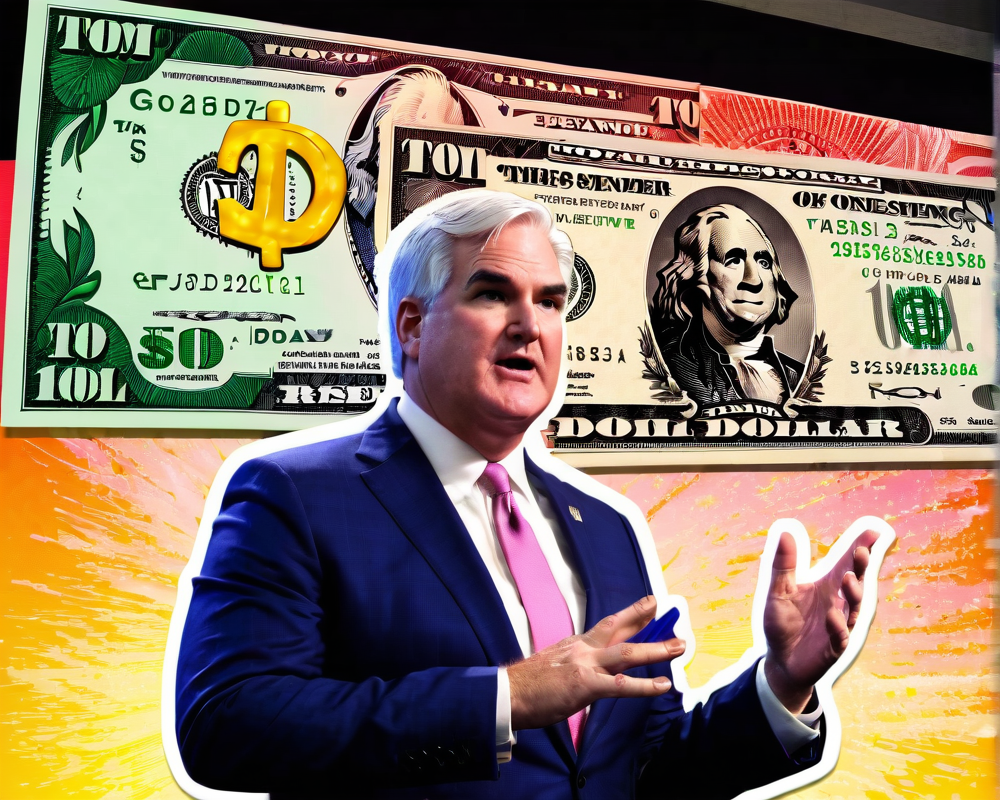Tom Emmer Takes a Stand: Proposed Bill Aims to Block Federal Reserve from Digital Dollar Direct Lending
Tom Emmer’s Stance
In a bold move, Minnesota Representative Tom Emmer is making it clear: the Federal Reserve should not act like a retail bank. Emmer has unveiled a bill that aims to put a stop to any direct issuance of a central bank digital currency (CBDC) to U.S. consumers by the Fed. In his announcement, he expressed concerns about the implications of such actions, hinting at a slide towards digital authoritarianism reminiscent of practices in China.
What’s the Issue with a CBDC?
Emmer argues that requiring users to create accounts with the Fed to access a digital dollar is not just convenient—it’s dangerous. His viewpoint suggests that this could jeopardize citizen privacy and usher in a new era of financial surveillance. “The Fed does not, and should not, have the authority to offer retail bank accounts,” he stated emphatically.
Privacy, Transparency, and Accessibility
According to Emmer, any future digital dollar must be open, permissionless, and preserve the privacy features that cash offers. The groundwork for this concept involves integrating blockchain technology that is transparent to all users. This transparency is pivotal, serving as a safeguard against centralized control and potential data breaches that could expose sensitive personal information.
Timing with Fed Discussions
Interestingly, this bill follows closely on the heels of Federal Reserve Chair Jerome Powell’s comments regarding the upcoming report on CBDCs. While taking questions from the Senate Banking Committee, Powell agreed that the Fed’s proposal to develop retail accounts for individual Americans raises critical historical and functional concerns. It leaves us asking: does the Fed have the chops to play banker?
Past Legislative Efforts and Future Implications
Emmer’s push for clearer regulatory measures regarding digital currencies isn’t new; he’s been at the forefront, introducing bills that advocate for innovation while securing users’ financial privacy. As he continues to engage with fellow lawmakers about the intricacies of cryptocurrencies and their regulation, the stakes continue to rise for U.S. consumers and the digital economy.
This ongoing discussion has broader implications not just for financial technology but also for personal freedoms and privacy in the digital age. The coming weeks will certainly provide more insight as the Fed rolls out its report, but one thing’s for sure—Emmer isn’t shy about setting the record straight when it comes to the government’s role in digital currency.




